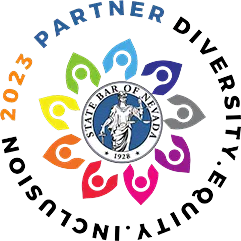
Divorce and Joint Revocable Living Trusts – What you need to know!
Divorce is one area of law that affects many parts of our lives. When a person gets a divorce there are many issues that come up in the divorce that require careful consideration such as, the handling of family or joint businesses, personal property assets, retirement accounts, tax debts, child custody and support, and many, many other issues that arise with the complications of modern life.
One significant issue that should be considered is the effect of a divorce on a married couple’s joint revocable living trust.Under Nevada law, specifically in Chapter NRS 163, divorce can have a significant impact on trusts. Here’s a simplified explanation:
1. Trusts and Divorce:
If you’re divorcing, the terms of a trust you set up will most likely be changed by automatic operation of Nevada Law. Generally, divorce can affect how assets in the trust are distributed and who manages the trust (the Trustee). Your trust MUST be reviewed before the divorce is final to determine what the divorcing couple wants to have happen to the assets contained within the trust. For example, if the couple is dividing all assets, but each wants to make sure that some assets are passed to their children, they can agree through settlement that the person receiving said asset will maintain it and devise it to the mutual child or children of the couple.
2. Revoking Beneficiaries and Trustees:
After a divorce, any provisions in the trust that name your former spouse as a beneficiary or Trustee may be automatically revoked (unless you have agreed otherwise, and the Court has ratified that agreement). This means your ex-partner may no longer receive benefits from the trust or control the trust when the first person passes away, unless the settlement terms of the divorce, or orders of the Court specifically state otherwise.
3.Revising the Trust:
It is highly recommended that you engage a new trust or estate plan after a divorce. It is not generally advisable that you keep the same trust in place after divorce that you had prior to divorce. Make it clean. Get a new estate plan done.
This ensures that your estate plan reflects your current wishes and that your assets go to the people, or family you want. Fifty percent of American’s do not have an estate plan, also 50% of American’s divorce; while these numbers most likely do not correlate, don’t be caught unaware! If you do not have a trust, or estate plan, talk to an attorney about getting one. After every major life event, you should be thinking about changes that may be necessary to your estate plan. If you do not understand your estate plan, please have it reviewed by an attorney or have the attorney who drafted it explain it to you. At Surratt Law Practice, we make sure you understand your estate plan before you sign it. Your attorney should make sure you understand what you are doing.
4. Court Orders:
If there’s a court order related to divorce, it can also impact the trust. For example, the court might order a certain distribution of trust assets as part of the divorce settlement. In other words, in Nevada, just having assets in a Revocable or Irrevocable Trust will not prevent their division or allocation.
5.Legal Advice:
It’s important to get GOOD legal advice to understand how divorce affects your specific trust and to make necessary updates, or draft new estate plans. A lawyer can help ensure that your trust aligns with your post-divorce wishes and legal requirements.
Please note:This analysis also applies to Nevada registered Domestic Partners.
In short, a divorce will most likely alter how a trust operates, especially concerning beneficiaries, trustees and asset distribution. Regularly reviewing your trust and consulting with a lawyer can help you manage these changes effectively. A trust does not require constant updating, but as major life events occur, one should consider the life event and how it affects their wishes as to how assets are handled at death.






